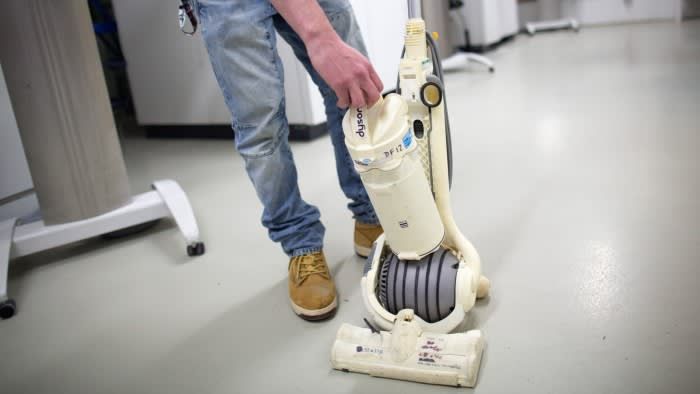Dyson to cut a quarter of UK workforce

Access the Editor’s Digest at no cost
Roula Khalaf, the person in charge of the FT, chooses her preferred articles for this newsletter she sends out every week.
Dyson is cutting approximately 1,000 jobs in the United Kingdom, which is more than 25% of its employees in the country.
Employees at the company that makes vacuum cleaners and air filters were informed on Tuesday morning about job cuts. The layoffs are a part of a larger effort to downsize the company's 15,000 employees worldwide, sources say.
The layoffs in the UK are a setback and happened on the day when the new secretary of state for business, Jonathan Reynolds, held a conference call with over 100 business leaders to discuss his goals.
Dyson's main market is in Asia, where the company faces competition from local companies that often create products that look very similar to Dyson's shortly after they are released.
"Dyson is active in extremely competitive international markets, where the speed of innovation and change is constantly increasing. We understand the importance of being innovative and flexible in order to succeed," stated Hanno Kirner, the company's CEO.
"We have expanded rapidly, and, like all businesses, we periodically evaluate our international frameworks to make sure we are ready for what lies ahead," he explained, expressing that reducing jobs is "always extremely difficult."
The investigation that resulted in the layoffs began before the UK general election was announced in May, as reported by individuals familiar with the situation, and the layoffs are not connected.
Dyson has around 3,500 employees in the United Kingdom. The company has not specified the number of jobs that will be reduced globally, as evaluations are being conducted on a country-specific basis.
The business, still led by founder Sir James Dyson, has expanded from just making vacuum cleaners to creating hair dryers, fans, and air purifiers. The engineers at the company are constantly working on numerous projects, with some remaining confidential.
In 2019, Dyson decided to halt their £2 billion effort to enter the electric vehicle manufacturing industry. However, they are still focusing on developing batteries for their cordless products.
The budget cuts in the UK are predicted to impact all areas, including upper management levels. Despite this, Britain will continue to serve as a key research and development center for the company and will remain the primary hub for product development, despite some of this work being done in Singapore.
However, the layoffs may add to the already complex reputation of the founder of the company in the UK, who is known as one of Britain's most accomplished innovators and business owners.
The wealthy individual lost a legal case for defamation last year against the company that owns the Daily Mirror. The article in question accused the business tycoon of being a "hypocrite" for backing Brexit but then relocating his company's main office to Singapore.
At that time, the company stated that Brexit did not influence their decision to relocate. They explained that the move was based on commercial factors, as the majority of their customers and manufacturing facilities were located in Asia.
In December, Sir James Dyson stated that the current political leaders in the UK, regardless of their party affiliation, were not focused on promoting economic growth. He expressed his belief that the concepts of creating wealth and fostering growth were now viewed negatively.
The recent appointments of Prime Minister Keir Starmer and Chancellor Rachel Reeves have emphasized the importance of economic growth in their vision for the UK. However, they are continually being criticized by their rivals for potentially having to increase taxes in order to achieve their goals.
The creator of Dyson had a heated confrontation with former Conservative chancellor Jeremy Hunt during a meeting at No 11 Downing Street in March. Observers described the exchange as intense. One individual who was present said that Hunt challenged the businessman, asking why he didn't just run for election if he believed he could do a better job.













































